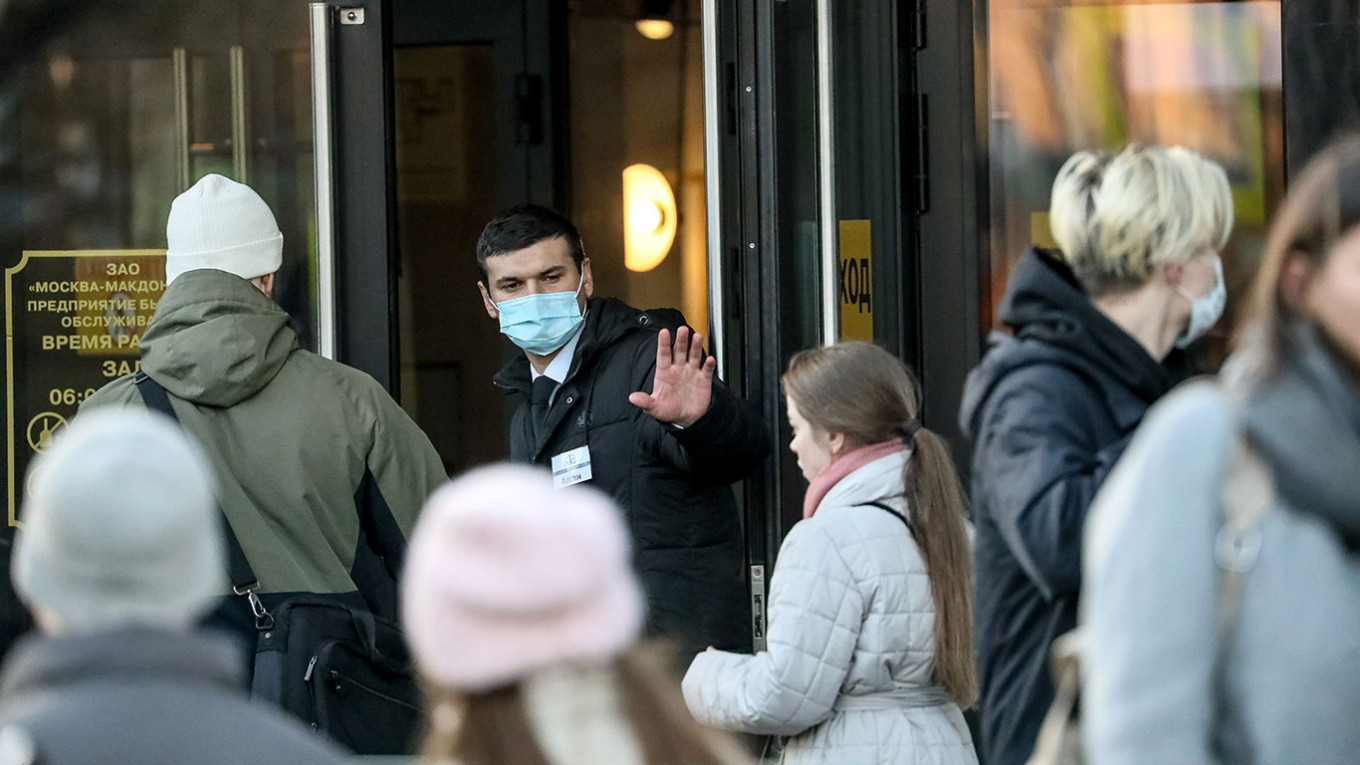Russia’s nationwide paid holiday aimed at curbing the spread of the coronavirus came to an end Monday as some regions kept the restrictions in place and many others implemented digital passes showing proof of vaccination or recent Covid-19 recovery.
President Vladimir Putin ordered the partial lockdown from Oct. 30 to Nov. 7 in a bid to slow soaring infection and death rates exacerbated by widespread vaccine hesitancy. Though the infection growth rate slowed last week, Russia still counted its highest number of new coronavirus infections since the start of the pandemic on Saturday.
With the weeklong holiday over, most Russian regions left in place requirements for digital Covid passes to enter public areas and events. Moscow, the epicenter of Russia’s outbreak, requires scannable barcodes known as QR codes for visits to any entertainment and sporting events with attendance of more than 500 people.
St. Petersburg, meanwhile, has imposed strict QR code requirements to enter any venue, including shopping malls and hotels.
Several regions have extended their paid holidays past Monday, including the Smolensk, Kursk, Chelyabinsk, Novgorod, Tomsk and Bryansk regions.
Public health officials noted that the so-called “non-working period” only helped stabilize the spread of Covid-19, while the end of the pandemic is only possible by reaching herd immunity through vaccinations and recent recovery from the virus.
Although Russia has rolled out several homegrown vaccines, including Sputnik V, only about a third of the population is fully inoculated.
Russia is among the world’s worst-hit countries by the pandemic with a caseload approaching 8.8 million and the Delta variant-driven fourth wave infecting and killing a record number of people.
Saturday's official tally registered 41,335 new cases — the highest number of new infections since the outbreak — and 1,188 coronavirus deaths in the past 24 hours. Russia on Sunday confirmed 39,165 Covid-19 infections and 1,179 deaths.
AFP contributed reporting.
A Message from The Moscow Times:
Dear readers,
We are facing unprecedented challenges. Russia's Prosecutor General's Office has designated The Moscow Times as an "undesirable" organization, criminalizing our work and putting our staff at risk of prosecution. This follows our earlier unjust labeling as a "foreign agent."
These actions are direct attempts to silence independent journalism in Russia. The authorities claim our work "discredits the decisions of the Russian leadership." We see things differently: we strive to provide accurate, unbiased reporting on Russia.
We, the journalists of The Moscow Times, refuse to be silenced. But to continue our work, we need your help.
Your support, no matter how small, makes a world of difference. If you can, please support us monthly starting from just $2. It's quick to set up, and every contribution makes a significant impact.
By supporting The Moscow Times, you're defending open, independent journalism in the face of repression. Thank you for standing with us.
Remind me later.






